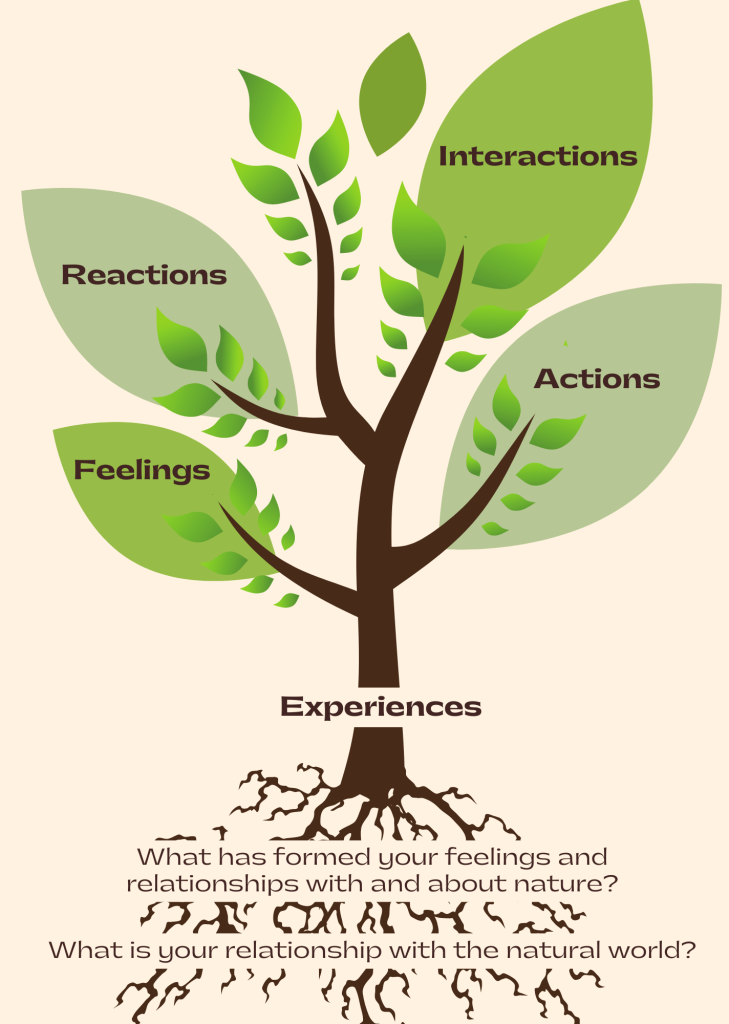3 View of Self in Relationship with Nature
Relationships with nature, like any other relationship, are multi-faceted and complex.This first topic invites you to take the time to how and why your thoughts and feelings about nature have evolved into what they are today. To look inward and identify those significant memories or experiences (or lack thereof), the messages you have received, and how you feel with and about nature will not only provide you with an understanding of your own place in this subject, but also a deeper understanding of how to support the children you work with as early childhood educators in deepening and understanding their own relationships with the natural world.
Key Takeaways
The image below represents how our relationships with the natural world grow into being.

Our experiences with nature in the past (whether positive, negative, neutral or a mix of all) work together to form dynamic thoughts, feelings and experiences with and about nature in the present. As a result, how we act, react and interact in nature (our experiences in nature) continues to shape how we feel and how we relate.
Additional Resource
What do interactions with nature look like in the outdoor early learning environment? Robyn Ashley (recent Master of Arts in Child and Youth Study grad reflects on her experiences working as an early childhood educator and the “divide that can be created between children and the natural world in this post on the Canadian Association for Young Children blog.
Making Pedagogical Choices with a Bird’s Nest- Your thoughts
Complete the prompts in the following exercises.[2] You can save and export your answers to a word file [on the last side ].

